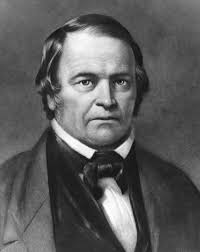The Great Disappointment

A big source of uncertainty at the moment is: What happens when reality — of a sort — finally sets in for all the people who are still expecting Trump to remain president? (The extent to which this group includes Trump himself is a further significant unknown).
There’s a MAGA rally/protest set for Washington DC on January 6th, the day that Congress certifies the Electoral College vote, and Trump is encouraging his followers to be there. Trump himself really does seem to decompensating into a frankly delusional state of mind, in which he believes that Mike Pence can stop Congress from certifying the vote. He had a long meeting with Pence the day before yesterday, and it’s pretty easy to guess the main topic of conversation (In fact while Pence can, legally speaking, do nothing to stop the certification, he could remove Trump as president the day after tomorrow for the rest of Trump’s term, and I’m encouraging him to do so).
In any event, there really do seem to be quite a lot of people who haven’t yet come to terms with the inevitability of the end of Trump’s presidency. “Q” has pretty much stopped posting since the election, but of course here in America we’re never short of prophets in this eschatology-crazed little land:
All this reminds me of the fascinating history of what happens to prophetic movements when the prophecies fail. A particularly interesting one is the story of William Miller and The Great Disappointment, which eventually gave birth to the Seventh Day Adventists.
Miller, a New York farmer and preacher, engaged in a kabbalistic style of Biblical interpretation, in which literally every detail of the scriptures is relevant to every other detail, real or imagined, all within the assumption that the scriptures provide a comprehensive and inerrant code for understanding everything about the world, including most particularly the exact date on which it was going to end. This turned out to be, after a few false starts, October 22, 1844.
When that didn’t happen, most Millerites seemed to have fallen away from the movement — his followers, many of whom had sold all their possessions in anticipation of the Second Coming, were subject to much mockery and even some violence — but a righteous remnant reinterpreted events to fit them into the prophetic narrative. One strand of this reinterpretation became the basis of the Seventh Day Adventist church.
Of course on one level the Millerites were just reprising the early history of Christianity as a whole: it’s evident that most of the early Christians thought the Second Coming was imminent, which undoubtedly led to a series of disappointments that eventually required a massive recalibration of belief.
How the various strands of the Trump cult will recalibrate themselves when their prophecies fail will be one of the more interesting stories of the coming year or years.


